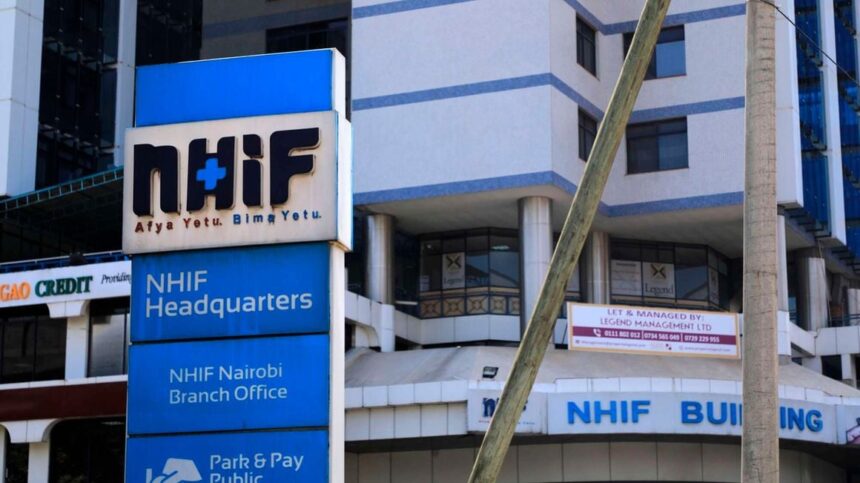After the failure of the national insurer to deliver payments, over 350 rural hospitals will begin rejecting National Health Insurance Fund (NHIF) cards on Wednesday and will instead require customers to pay in cash.
According to the Rural Private Hospitals Association of Kenya (Rupha), the NHIF Board has not sent a single penny to healthcare facilities in the April-June 2023 quarter, preventing them from paying employees and causing some layoffs.
Rupha, which represents healthcare centers in 43 counties, states that despite multiple guarantees from the NHIF Board that payments would be delivered since April, their accounts remain empty.
“As a result of the board’s failure to honour its financial commitments, the health facilities under the Rupha are left with no other recourse but to issue an immediate notice that beneficiaries of the NHIF Capitated Schemes will be required to make cash payments to access services, effective from May 31, 2023,” said Rupha chairman Brian Lishenga in a letter to NHIF chairman Michael Kamau.
In April, healthcare centers serving marginalized populations in rural and urban areas, like as Kangemi, Kayole, and Kisauni in Nairobi, began charging NHIF clients fixed prices for services delivered, with the insurer covering the remainder.
Hospital administrators claim NHIF owes them Sh12 million, which has been accruing since last year. Some of the hospitals affected include those that have signed a comprehensive cover agreement with the fund, which allows patients to obtain treatment without having to pay a dime to the healthcare provider.
The NHIF is bankrupt, and the National Treasury owes it Sh27 billion. Counties too are not remitting money to the NHIF, making it harder for the fund to reimburse hospitals.
Several hospitals are suffering, according to Dr Davji Atella, secretary-general of the Kenya Medical Practitioners, Pharmacists, and Dentists Union (KMPDU), since the government was trying to frustrate and withdraw money from the NHIF.
“The government cannot pretend to increase NHIF funds by increasing deductions from workers by up to 2.75 percent of gross salaries when the same government has been on a spree of defunding NHIF,” Dr Atella said.
He claimed that the national and county governments diverted approximately Sh20 billion from NHIF to private insurance businesses that make money instead of awarding bids to the national health insurer.
“Civil servants, including the police and the Parliamentary Service Commission, State officials and all county governments have private insurance, how do you expect NHIF to stand on its own? This whole mess is caused by the government,” he said.







